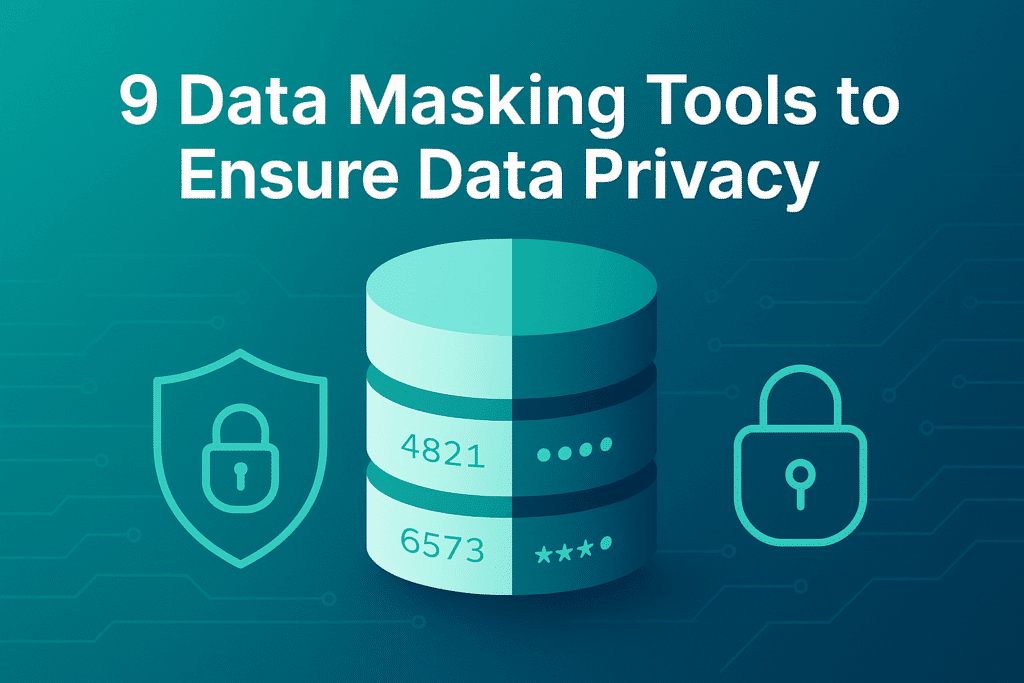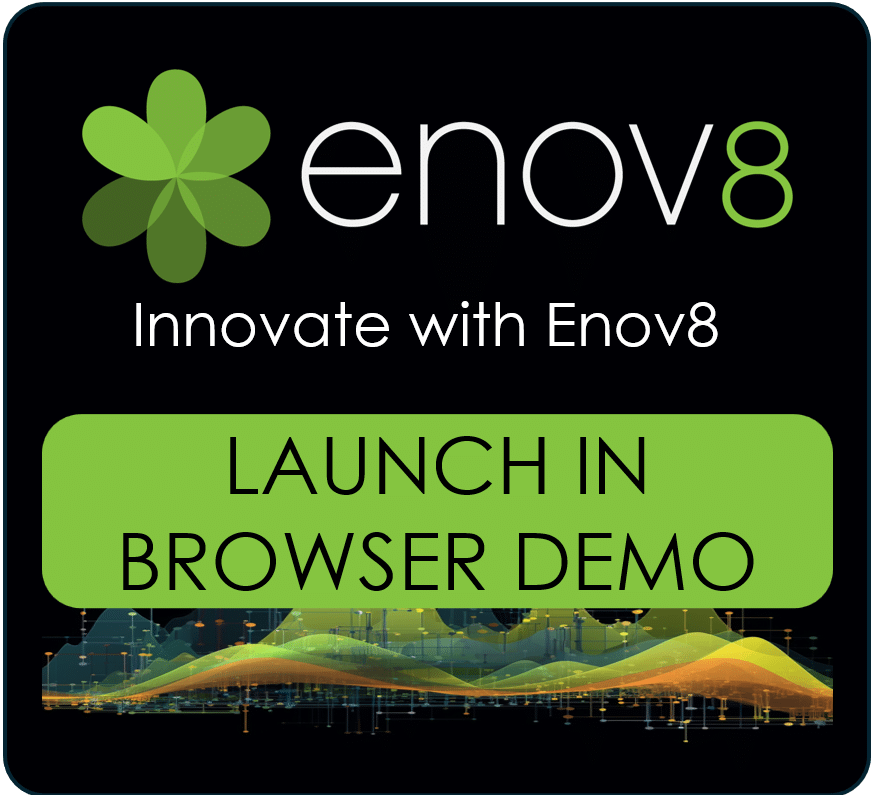
As organizations collect, process, and replicate data across more systems than ever before, the risk of exposure increases dramatically. Sensitive information that’s safely stored in production databases often becomes vulnerable when copied into test, training, or analytics environments.
That’s where data masking comes in.
By transforming or anonymizing data in a controlled way, businesses can use realistic datasets without compromising privacy. All the upsides of production(ish) data, none of the landmines.
This post explores what data masking is, why automated tools matter, and reviews eleven leading data masking tools that help enterprises ensure data privacy and regulatory compliance.
What Is Data Masking?
Data masking is the process of concealing sensitive information by replacing it with fictitious but realistic values.
It allows organizations to preserve the structure and format of their data while removing identifying or confidential elements. For example, a masked record might retain the same number of characters as the original but use randomized or tokenized content.
This practice is sometimes called data anonymization or obfuscation, and it’s central to data privacy regulations like GDPR, HIPAA, and PCI DSS. Masking is especially important in non-production environments, such as development and testing, where access controls may be looser but accurate data is still needed to validate software and systems.
Why Use Data Masking Tools
Manual data masking is time-consuming and prone to error, particularly when working across multiple databases and applications. Automated data masking tools provide a consistent, repeatable, and auditable way to protect data at scale. They can discover sensitive fields automatically, apply complex masking rules, and maintain referential integrity across data sources.
Using these tools offers several benefits.
They save time and reduce the risk of human error. They support compliance by generating reports that document data privacy controls. And they can integrate into DevOps and CI/CD pipelines, ensuring that data privacy is maintained as part of everyday workflows rather than an afterthought.

Top Data Masking Tools to Ensure Data Privacy
Below are eleven tools that help organizations protect sensitive information while maintaining data quality and usability.
1. Informatica Dynamic Data Masking
Informatica’s Dynamic Data Masking solution focuses on protecting sensitive data in real time. It intercepts database queries and applies masking rules on the fly based on user roles and policies. This means users with different privileges can see appropriately masked or unmasked data without changing the underlying dataset. Informatica’s integration with popular enterprise databases and cloud services makes it a strong fit for large organizations managing diverse systems.
Pros: Real-time masking for production systems, granular policy control, broad platform support.
Cons: Complex setup and licensing may be excessive for smaller teams.
2. IBM InfoSphere Optim
IBM InfoSphere Optim provides robust data masking and subsetting capabilities as part of a larger data lifecycle management suite. It can create masked, referentially intact subsets of production data for testing and analytics. Optim supports a wide range of database types, including mainframes, making it suitable for large enterprises with legacy infrastructure. Its automation and audit trail features simplify compliance across global teams.
Pros: Enterprise-grade scalability, multi-platform support, built-in audit capabilities.
Cons: Configuration can be complex, and licensing costs are high compared to lightweight alternatives.
3. Delphix Data Masking
Delphix’s Data Masking platform automates the discovery and masking of sensitive data across cloud and on-prem environments. It integrates with DevOps workflows, allowing teams to mask data before it’s used in test or development environments. Delphix uses pattern-based discovery to identify sensitive fields automatically, reducing the need for manual configuration. Its strong integration with CI/CD pipelines makes it a favorite for enterprises pursuing rapid software delivery with privacy controls baked in.
Pros: Strong DevOps integration, automated discovery, support for both structured and unstructured data.
Cons: May require technical expertise to fully integrate into existing pipelines.
4. Oracle Data Safe
Oracle Data Safe offers native data masking capabilities for Oracle databases. It automatically discovers sensitive data, recommends masking formats, and applies templates to ensure consistency. It also supports activity auditing, user risk assessment, and security configuration checks, making it a holistic security tool for Oracle users. Because it’s built and maintained by Oracle, Data Safe ensures compatibility and optimization for the Oracle ecosystem.
Pros: Seamless Oracle integration, automated discovery and templates, built-in compliance reporting.
Cons: Limited to Oracle environments; less flexibility for multi-database architectures.
5. Microsoft SQL Server Dynamic Data Masking
Microsoft’s Dynamic Data Masking feature provides a built-in approach for hiding sensitive data in SQL Server and Azure SQL Database. It dynamically masks data at query time without altering stored values, allowing production systems to remain unchanged. The configuration is simple; administrators can apply masking rules directly through SQL syntax. It’s a good choice for organizations looking for quick wins with minimal operational overhead.
Pros: Simple to configure, included in SQL Server and Azure, no external dependencies.
Cons: Limited to basic masking use cases; lacks the depth and automation of specialized tools.
6. Imperva Camouflage
Imperva Camouflage is designed for complex enterprise data environments, providing high-performance masking across databases, files, and big data platforms. It generates realistic masked data that maintains functional and statistical properties of the original dataset, which is crucial for accurate testing. The platform also offers strong auditing features and supports integration with data governance frameworks.
Pros: Highly scalable, realistic masked data, strong auditing and governance support.
Cons: Implementation complexity can be high, especially for heterogeneous data sources.
7. Datprof Privacy
Datprof Privacy combines data masking, subsetting, and synthetic data generation in one platform. It helps testing and QA teams quickly create compliant, representative test environments. The tool is known for its user-friendly interface and fast setup, making it accessible to teams without deep technical expertise. Datprof also supports CI/CD integration for automated provisioning of masked data.
Pros: Easy to use, fast deployment, strong synthetic data capabilities.
Cons: Less suited for large-scale enterprise environments or highly customized use cases.
8. IRI DarkShield / FieldShield
IRI’s data masking suite (DarkShield for unstructured data and FieldShield for structured data) provides an unusually flexible approach. It can mask sensitive fields across databases, flat files, spreadsheets, and even documents or PDFs. It supports various masking techniques such as encryption, hashing, pseudonymization, and redaction. These capabilities make it well-suited for organizations handling diverse data formats across departments.
Pros: Extremely versatile, supports structured and unstructured data, broad masking methods.
Cons: Interface can feel dated, and setup requires familiarity with IRI’s data management ecosystem.
9. Enov8 TDM (Test Data Management)
Enov8’s Test Data Management platform integrates data masking into a broader framework of environment and test data control.
It enables teams to discover sensitive data, define masking policies, and generate compliant datasets for development and testing. Beyond masking, Enov8 provides visibility into test environments, versioning, and data provisioning workflows — helping organizations achieve both compliance and efficiency. Its focus on integration and governance makes it ideal for enterprises seeking holistic control over their non-production data landscape.
Pros: Combines masking with environment and data lifecycle management, strong governance features, supports enterprise-scale workflows.
Cons: Best suited for organizations with formalized testing and DevOps processes rather than small ad hoc teams.
How to Choose the Right Data Masking Tool
Choosing the right data masking tool depends on your organization’s size, technical stack, and compliance requirements. Enterprises running multiple data platforms should prioritize integration and scalability, while smaller teams may focus on ease of setup and usability.
Key selection criteria include compatibility with existing databases and cloud providers, support for structured and unstructured data, masking performance, automation capabilities, and audit readiness.
You should also consider how easily the tool fits into your broader DevOps or CI/CD workflows. For example, Delphix or Datprof may appeal to teams prioritizing automation speed, while platforms like Enov8 or Informatica are better for organizations emphasizing governance and visibility. Ultimately, the goal is to strike a balance between compliance, usability, and operational efficiency.
Final Thoughts
Data masking has evolved from a niche compliance function into a foundational element of enterprise data management. Automated masking tools allow teams to innovate safely by ensuring that data privacy and integrity are preserved across the entire lifecycle—from production to testing and analytics.
For organizations seeking not just masking but complete control over their data, environments, and compliance posture, Enov8’s Enterprise IT Intelligence and Test Data Management solutions offer a unified approach. They help enterprises reduce risk, improve transparency, and accelerate delivery—all while maintaining trust in how data is handled.

